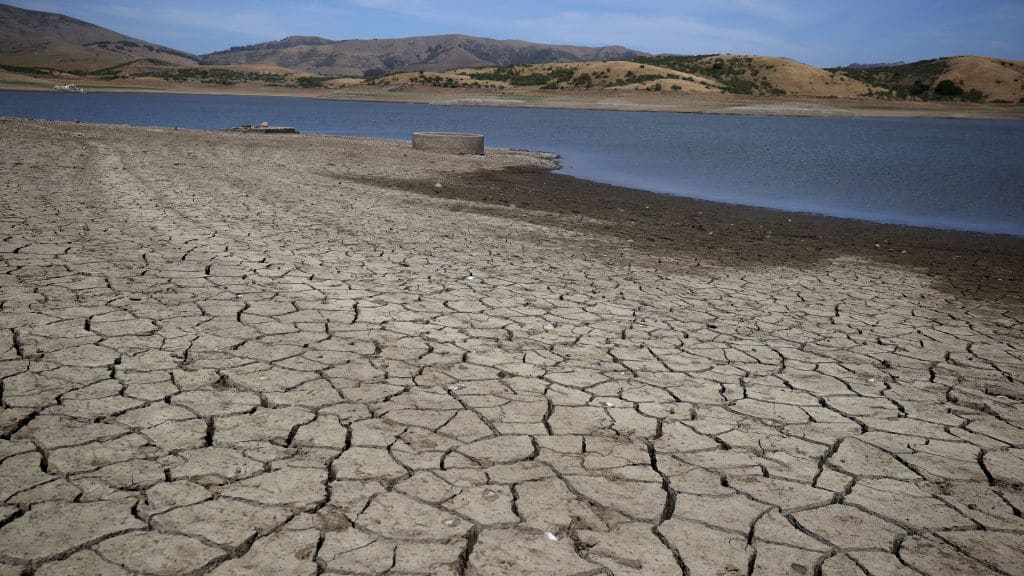California had its driest year since 1924


A free daily email with the biggest news stories of the day – and the best features from TheWeek.com
You are now subscribed
Your newsletter sign-up was successful
California recorded one of its driest water years, receiving just half the amount of precipitation that falls during an average 12 months.
A water year runs from Oct. 1 through Sept. 30. After adding up precipitation measurements recorded at its different stations during the time period, the Western Regional Climate Center calculated that 11.87 inches of rain and snow fell in California over the 2021 water year, the Los Angeles Times reports. This is well below the yearly average of roughly 23.58 inches.
The California Department of Water Resources said this is the second driest year on record, and the last time the state experienced such little rain and snowfall was in 1924. California saw record heat this summer, and more than 87 percent of the state is experiencing extreme or exceptional drought. Gov. Gavin Newsom (D) has asked residents to reduce their water use by 15 percent before the state imposes mandatory restrictions.
The Week
Escape your echo chamber. Get the facts behind the news, plus analysis from multiple perspectives.

Sign up for The Week's Free Newsletters
From our morning news briefing to a weekly Good News Newsletter, get the best of The Week delivered directly to your inbox.
From our morning news briefing to a weekly Good News Newsletter, get the best of The Week delivered directly to your inbox.
Only two of California's major reservoirs are at or above their average storage level, and one of Los Angeles' major water sources, Lake Mead in Nevada, has been declining over the last two decades. A recent National Oceanic and Atmospheric Administration study found that because of warmer temperatures caused by climate change, precipitation and melted snowpack are evaporating faster than in previous years.
"We've already had this dry year, and we're in a drought situation, and then trends are that it potentially could be below the low rainfall season again this winter," Jayme Laber, a senior hydrologist with the National Weather Service, told the Times. "All those things add up to not looking good."
A free daily email with the biggest news stories of the day – and the best features from TheWeek.com
Catherine Garcia has worked as a senior writer at The Week since 2014. Her writing and reporting have appeared in Entertainment Weekly, The New York Times, Wirecutter, NBC News and "The Book of Jezebel," among others. She's a graduate of the University of Redlands and the Columbia University Graduate School of Journalism.
-
 The Olympic timekeepers keeping the Games on track
The Olympic timekeepers keeping the Games on trackUnder the Radar Swiss watchmaking giant Omega has been at the finish line of every Olympic Games for nearly 100 years
-
 Will increasing tensions with Iran boil over into war?
Will increasing tensions with Iran boil over into war?Today’s Big Question President Donald Trump has recently been threatening the country
-
 Corruption: The spy sheikh and the president
Corruption: The spy sheikh and the presidentFeature Trump is at the center of another scandal
-
 The environmental cost of GLP-1s
The environmental cost of GLP-1sThe explainer Producing the drugs is a dirty process
-
 The plan to wall off the ‘Doomsday’ glacier
The plan to wall off the ‘Doomsday’ glacierUnder the Radar Massive barrier could ‘slow the rate of ice loss’ from Thwaites Glacier, whose total collapse would have devastating consequences
-
 Can the UK take any more rain?
Can the UK take any more rain?Today’s Big Question An Atlantic jet stream is ‘stuck’ over British skies, leading to ‘biblical’ downpours and more than 40 consecutive days of rain in some areas
-
 As temperatures rise, US incomes fall
As temperatures rise, US incomes fallUnder the radar Elevated temperatures are capable of affecting the entire economy
-
 The world is entering an ‘era of water bankruptcy’
The world is entering an ‘era of water bankruptcy’The explainer Water might soon be more valuable than gold
-
 Climate change could lead to a reptile ‘sexpocalypse’
Climate change could lead to a reptile ‘sexpocalypse’Under the radar The gender gap has hit the animal kingdom
-
 Why scientists want to create self-fertilizing crops
Why scientists want to create self-fertilizing cropsUnder the radar Nutrients without the negatives
-
 The former largest iceberg is turning blue. It’s a bad sign.
The former largest iceberg is turning blue. It’s a bad sign.Under the radar It is quickly melting away
